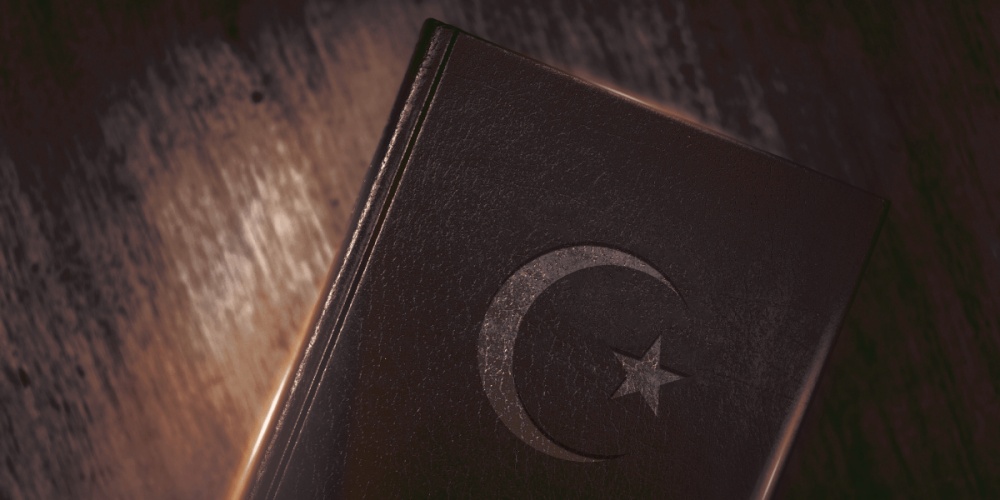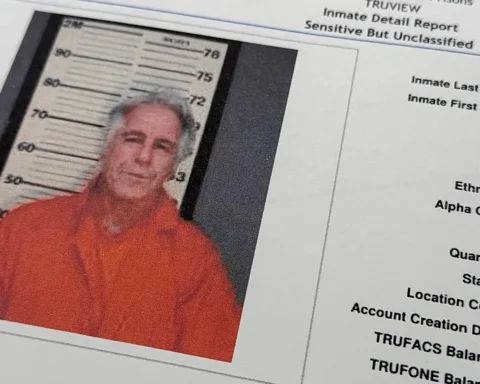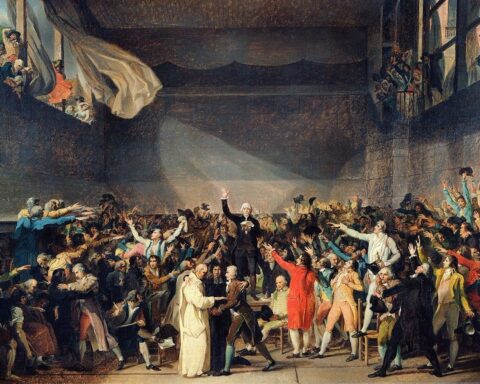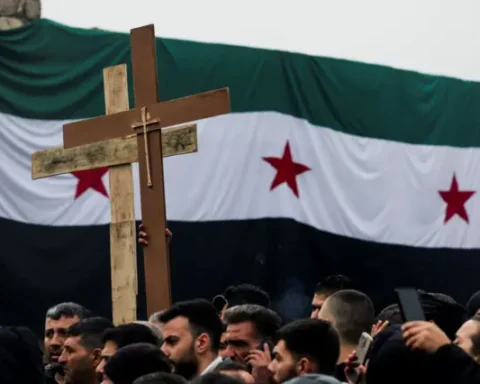Racism is a poison that consumes peoples…
Anatolia has for centuries been a land where different languages, beliefs, and ways of life have intersected. This diversity is one of the most sensitive veins of both cultural richness and politics. For this reason, the 1921 Constitution was based on pluralism. However, subsequent amendments brought a monolithic understanding of identity to the fore and kept politics on a fault line for many years. The name of the resulting crisis was identity politics, and in the process, identities were brought to the center of both governance and political discourse. Today, the economic, technological, and social transformations added to this historical legacy have made the fault lines created by identity politics even more visible. Therefore, the identity politics tension we are experiencing today is not only the continuation of current actors and events but also the extension of this historical legacy that has been accumulating for nearly a century.
The Issue of National Identity
National identity and nation building were the political formulas for constructing the capitalist world order in the 19th and 20th centuries. The Republic of Türkiye expressed its intention to hold on to the last remaining land from the Ottoman Empire using this formula. All practices carried out in the name of national unity, including the policies of denial it experienced internally, were ultimately aimed at stopping the tragic fragmentation that had occurred, preventing a new breakup, and, in particular, blocking the regional policies of hostile states. This expresses not the legitimacy of the violence and oppression that was applied, but the tragic depth of the problem, the historical fear and anxiety. Because, as a result of the political perspective of the period, every different voice that emerged increased the expressed anxieties.
We all know very well the result of failing to manage demands and anxieties. Therefore, it is necessary to carefully construct this equation when both assessing concerns and voicing demands. Because identity politics, at first glance, gives a sense of belonging, and the individual feels like part of a larger whole. But at the same time, it draws an invisible line: those who are “us” and those who are separated as “them.” In this case, politics ceases to be a platform for finding solutions to common problems and becomes an arena for competing identities. The result of the situation we are discussing is a scenario where there are no winners, only the emergence and deepening of divides. To see this scenario more clearly, we need to examine in concrete terms what structural problems identity politics has created.
This style of politics, shaped by ethnic origin, sect, belief, lifestyle, or ideological affiliations, may at first glance appear to be a powerful tool for social mobilization. However, history and current experiences show that identity politics divides societies rather than uniting them, narrows the space for dialogue, and sometimes even triggers the risk of violence. Today, politics in Türkiye often takes place within the gravitational pull of this division. In election campaigns, on television debates, and even in the most heated discussions on social media, there is a reckoning based on identities. Yet this reckoning neither lightens the burdens of the past nor solves the problems of the future. So, what path lies ahead for Türkiye? Will we continue down this narrow political path centered on identity, or will we turn toward the broad horizon of a democratic republic?
The Deadlock of Identity Politics
In fact, breaking the vicious cycle and answering the questions posed above requires placing not just identities, but shared citizenship at the center of politics. The appeal of identity politics comes from its appearance as a tool that simplifies politics. However, this simplicity brings with it heavy costs. To better understand these costs, we must look at the deadlocks created by identity-based politics.
As an easy form of politics, identity politics can increase voter support in the short term. However, the price of this support is the erosion of society’s common ground in the long term. Four fundamental dynamics can be identified in this regard.
The first dynamic is the undermining of social peace. Identity-based politics sharpens the distinction between “us” and “them.” The other is now perceived not only as someone who thinks differently, but as a potential threat. The second dynamic is the mechanism of creating opposition. The political empowerment of one identity also empowers the opposing identity. Thus, polarization becomes a self-perpetuating cycle. The third dynamic is the overshadowing of problems. Fundamental issues such as the economy, education, and health are left in the shadow of identity-based debates, and the damage caused by these problems becomes invisible. This situation leads to the distribution of resources according to identity-based priorities, with belonging rather than merit becoming the determining factor, and long-term development goals being postponed. The fourth dynamic is political deadlock. This manifests itself in the dominance of confrontation over negotiation and the weakening of the culture of compromise.
So, what is the way out of these deadlocks? Instead of deepening the divisions created by identities, is a model possible that allows them to exist freely but brings politics together on common ground? In fact, the idea of a democratic republic can answer this question.
The Vision of a Democratic Republic
A democratic republic is a model that does not ignore identities, but one in which they can exist freely and politics is conducted on the basis of citizenship with equal rights. Here, it is possible to mention three separate main points. The first is equal citizenship. An order in which every individual has equal legal and political rights. The second is the rule of law. The dominance of a concept of justice that does not vary according to identity. The third is pluralism. The constitutional guarantee of different identities, beliefs, and ways of life.
This model prevents identities from becoming the sole axis of political competition and makes politics problem-solving-centered. In such a system, different identities exist not only with constitutional guarantees but also with confidence in the natural flow of daily life. A democratic republic is not just a form of government; it is the sustainable foundation of social peace and a prerequisite for long-term development. However, vision alone is not enough. Implementing this understanding requires a specific strategic orientation and decisive steps.
It is possible to evaluate Türkiye’s strategic orientation regarding its choice of a democratic republic across three distinct time frames. In the short term, issues such as political discourse that reduces polarization, strengthening society, and purging the media language of hate speech can be mentioned. In the medium term, legal and institutional reforms. In this sense, topics such as expanding freedom of expression, ensuring judicial independence, and empowering local governments come to the fore. In the long term, the issue of strengthening a sense of shared belonging through education comes to the fore. The key here is the establishment of the concept of “equality of identities + common citizenship.”
Nation Building or a Democratic Republic?
The important point to note here is whether it is possible to combine the defense of a democratic republic with activities referred to as the “nation building project.” This is because these two concepts and approaches are opposites. It is impossible to pretend that they are not opposites. Therefore, it is unclear how the concepts of “democratic republic” and “Kurdish nation building,” which are frequently discussed in PKK circles, are evaluated and what kind of harmony exists between them. This is because it is impossible to change the existing picture with general statements. Furthermore, in a democratic process, it is impossible for these two conceptualizations to coexist. The discourse of a democratic republic is a political choice that requires defending pluralism. Nation-building, on the other hand, expresses the idea of centralizing a national identity and defining other identities in relation to this center. Simply put, one is based on diversity, while the other imposes a single, centralized identity. Therefore, it is impossible for these two conceptualizations to intertwine and coexist harmoniously.
If we consider examples from around the world, we see that nation-building projects involve transforming or suppressing other identities in order to create a common identity. A democratic republic, on the other hand, recognizes different identities with their own uniqueness and allows them to coexist under the umbrella of equal citizenship. For this reason, it is useful to discuss certain questions. For example, will we pursue 19th-century aspirations, or will we implement the perspective of equal and free citizenship of the 21st-century Democratic Republic of Türkiye? Can’t the demands of all citizens be met through this perspective?
The answers to these questions will determine where we stand politically and shape our perspective on the future. When discussing these issues, the legitimate and necessary demands of all segments of society should be seen as the driving force behind the Republic’s evolution into a freer, stronger, and greater country. Thinking and speaking from an inclusive standpoint regarding the common interests and future of the country and all its citizens is more valuable than pursuing a belated nationalist identity. This attitude is much more realistic than the diminishing goals of the psychological comfort that identity politics would provide.
The phrase “a thousand-year-old history” used for this country encompasses all social segments living in our geography at every stage and in every aspect. In the name of continuing the unity achieved through trial and error, along with many mistakes, within the integrity of a geography liberated at great cost from tyranny and occupation during World War I, all segments have contributions to make. These contributions are more rational than identity politics. This does not mean that legitimate demands are postponed or ignored. On the contrary, it means that all legitimate demands for identity and freedom are expressed through this stance. The point here is not to imitate different versions of the single-party era mindset, but to demonstrate a universal stance.
We must keep in mind that racism, tribalism, and nationalism are childhood diseases of humanity. We must also remember that the greatest history-making peoples are those who have chosen to exist with self-confident and universal identities, free from this disease. Therefore, it is important to evaluate the opportunities of the peace and democratization process we have achieved today not with the calculations, memorized formulas, habits, and conditioning of the past, but with the new perspective, stance, and opportunities required by the process.
A Decision Must Be Made
In conclusion, identity politics and identity construction may yield short-term gains but consume the country in the long run. It is clear that this is the fundamental reason behind many political tensions and fault lines in Türkiye. A democratic republic, on the other hand, allows all identities to exist as they are and thus strengthens the common future. More clearly, it offers a common roof under which differences can coexist. It is evident that Türkiye should evaluate its existing problems and choose, as its vision for the future, a model that freely allows identities to exist but feeds politics from equal citizenship rather than identities. Because it is our common ground, not our divisions, that will carry us into the future.
Therefore, the fundamental question is clear: will we build our future on collective wisdom and equal citizenship, or will we be consumed by the narrow confines of our identities? The choice is ours: either we remain stuck in the narrow molds of the past, or we build 21st-century Türkiye on the foundations of freedom, equality, and collective wisdom. Let us repeat, a decision must be made. Will it be nation building, which will force us to relive what we have experienced for 100 years, albeit at different levels or in different tones, or will it be a democratic republic that will implement the principles of equal citizenship and pluralism? Because it is clear that these two cannot coexist.
Source: https://www.perspektif.online/gelecek-tercihi-kimlik-siyaseti-mi-demokratik-cumhuriyet-mi/






